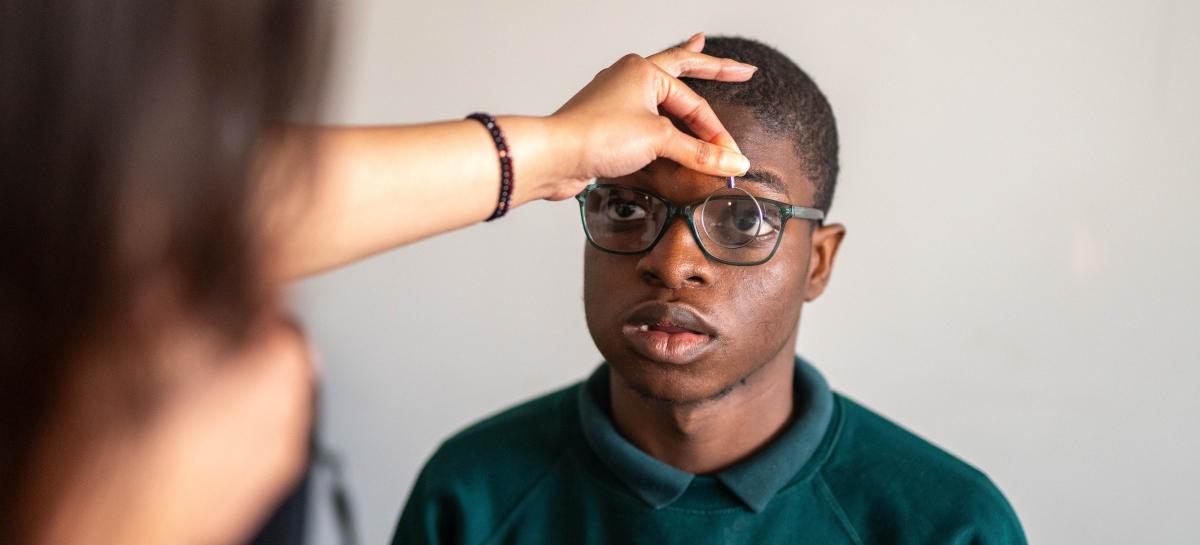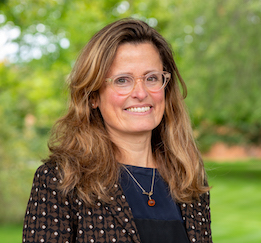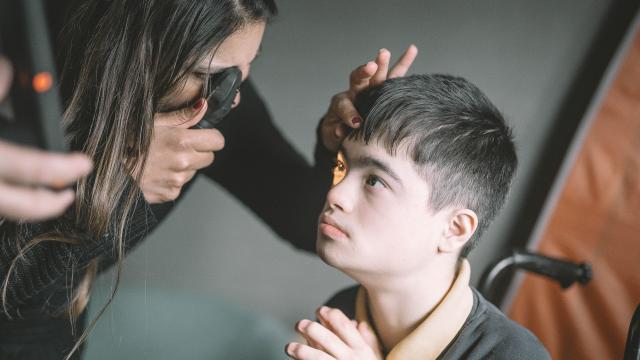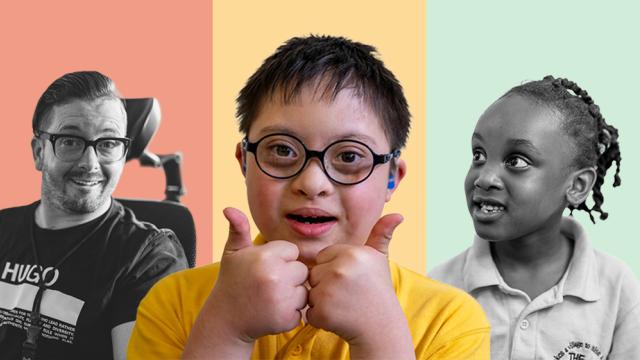
World Sight Day – A chance to focus on special schools eye care
 Today is World Sight Day and this year the focus is on ensuring access to eye care for all children. Our Head of Eye Care and Vision, Lisa Donaldson, reflects on news of NHS plans for the long-awaited rollout of the NHS special schools eye care service, and how vital it is for children with learning disabilities to get the right service in place.
Today is World Sight Day and this year the focus is on ensuring access to eye care for all children. Our Head of Eye Care and Vision, Lisa Donaldson, reflects on news of NHS plans for the long-awaited rollout of the NHS special schools eye care service, and how vital it is for children with learning disabilities to get the right service in place.
While World Sight Day will rightly highlight that so many children in low and middle income countries struggle to get their eyes checked, the same is actually the reality for many children here in the UK who are most at risk of a sight problem – those with learning disabilities.
Half of all children who attend special school will have a significant problem with their eyes, yet our research, and that of others, evidences that over half have never had their eyes tested and 35-40% need glasses, often to high and complex prescriptions.
I came to SeeAbility knowing from my career as an optometrist that very few people with learning disabilities were accessing their right to NHS sight tests, or if they were, the experience was extremely challenging or unsuccessful.
The NHS sight testing contract does not incentivise seeing ‘complex’ patients or enabling the continuity of their care in the community – if anything quite the opposite. As a community optometrist with a passion for supporting people with learning disabilities and other complex needs I had to leave my job in an opticians because I was seeing too many people with high support needs and losing them money!
This means many people with learning disabilities are sent into hospital eye clinics for routine eye tests and follow ups as there is nowhere else for them to go.
With long waiting lists and full eye clinics, this makes no sense.
The bottom line is that there are too many people with learning disabilities, including children, who are living their lives with totally avoidable sight loss and sight problems.
I joined SeeAbility to end this injustice and get better eye care systems in place.
A special schools eye care solution
We have been working on the case for a special schools eye care service and its delivery for over a decade.
By 2016, eye care experts and charities had used the evidence from SeeAbility and others to recommend a framework for a ‘one stop shop’ model of eye care in special schools. This would deliver not just eye tests, but well-fitting glasses, support to get used to these and a report for parents and teachers they could understand.
By 2019 the NHS was pursuing this in its Long Term Plan, and by 2021 a rollout had begun. But the rollout stopped in 2022. But, ultimately, the evidence from the new NHS services couldn’t be ignored. 75% of special schools getting the service reported seeing significant positive outcomes for their pupils. Parent/carers were overwhelmingly supportive and delighted. Hospitals had been able to discharge routine eye care to the service, helping alleviate waiting lists.
In June 2023 NHS England and the previous government announced that it would roll out the service to all special schools, reaching as many as 165,000 children.
Special schools across the country desperately want this service, as do children and parents. Eye care professionals in hospitals and the community stand ready to deliver.
Yesterday NHS England published guidance for the establishment of services nationally. But the guidance states that 'elements of the sight testing specification remain subject to development'. There remain question marks on both funding and when the rollout will begin.
SeeAbility and many others are imploring NHS England to use the model of care that has worked so well and has been so successful to date. This includes avoiding changes that will make it more difficult to provide the most transformative part of the service – providing well-fitting glasses and support to get used to them in school.
There is huge potential for this service to reduce health inequalities, make better use of community eye care, reduce hospital waiting lists and improve disabled children’s health and educational outcomes.
Our campaign continues with the clear message – why mess with success?
For more information on eye care for children with learning disabilities please see our dedicated information on children’s eye care.




